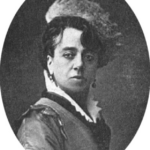
Jean Petitpas
Date of Birth
March 10, 1560
Place of Birth
Paris, France
Towns / Cities Moved Into
Known Occupation
Wine merchant , Bourgeois de Paris
Religion
-
Spouse
Death Information
Year of death
February 2, 1605
Place of death
Paris, France
Cause of death
-
Obituary

Parents

-

-
Marital Status


Married Marguerite Macé ou Massé
1583
Children



Narrative / Story
In the heart of 16th-century Paris, amidst a backdrop of religious strife and societal transformation, the life of Jean Petitpas unfolded, leaving an indelible mark on the annals of history. Born on March 10, 1560, in the bustling city of Paris, Jean Petitpas was destined to become a pivotal figure in the evolving socio-economic landscape of France.
Jean’s early years were marked by the turbulent religious conflicts that plagued the nation. As a Huguenot, a Protestant in a predominantly Catholic society, he and his family faced discrimination and persecution. The religious divide was a harsh reality that shaped his worldview and influenced the choices he would make in life.
With Paris as his birthplace and home, Jean grew up in an environment where the tensions between the Catholic majority and the Protestant minority ran deep. The Catholic Church held immense power and sway over the city, and Huguenots like Jean often faced challenges accessing education, employment, and even basic rights.
As he came of age, Jean embarked on a career as a wine merchant. In a city renowned for its viticulture and wine culture, this occupation was not only a means of livelihood but also a reflection of the rich heritage and traditions of Paris. Jean’s wine trade brought him into contact with people from diverse backgrounds, both Catholic and Protestant, bridging the gap that often divided them.
In 1583, Jean took a significant step in his personal life by marrying Marguerite Macé in a ceremony held in the heart of Paris. This union was not only a testament to their love but also a symbol of resilience in the face of religious discrimination. Together, they would face the challenges of raising a family in a society marked by religious tensions.
During his lifetime, Jean Petitpas witnessed a pivotal moment in French history: the Edict of Nantes in 1598. Under the rule of Henry IV, this edict granted a degree of religious liberty to the Huguenots, effectively ending the religious wars that had torn the nation apart. While it brought a measure of relief to Jean’s community, the scars of discrimination and persecution still ran deep.
Throughout his life, Jean navigated the complexities of being a Bourgeois de Paris, a member of the Parisian middle class, while adhering to his Protestant faith. He worked diligently as a wine merchant, striving to provide for his family despite the socio-economic challenges that came with his minority status.
As for his siblings and parents, their stories were intertwined with the same religious and societal struggles. They too faced discrimination and prejudice, but they shared in the hope that future generations would experience a more inclusive and tolerant France.
In the end, Jean Petitpas passed away on February 2, 1605, in Paris, the city that had been both his birthplace and lifelong home. His legacy, like the grapes that he cultivated and turned into wine, would continue to evolve, contributing to the complex tapestry of French history, marked by both adversity and resilience. His life serves as a poignant reminder of the challenges faced by religious minorities during a transformative period in France, and the enduring spirit of those who persevered against the odds.